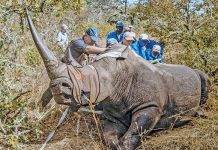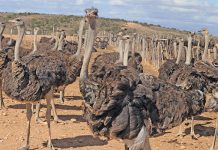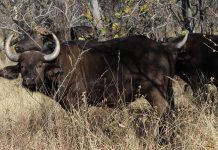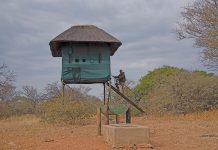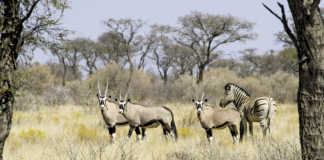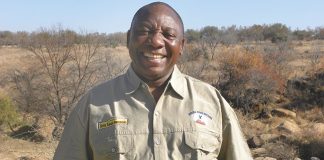The thriving wildlife industry contributes R7,7 billion annually to the country’s economy. It is pulling out all stops, however, to save itself from the financial ruin it fears will result from the determination of conservation purists, like CapeNature’s executive director of biodiversity Dr Kas Hamman, who will follow the UN Convention on Biodiversity – to which South Africa is a signatory – too rigidly.
A recent workshop by CapeNature on the organisation’s mammal translocation policy for the Western Cape again highlighted the different stakeholders’ outlook for the industry. One of the main friction points is that the authorities want to control ranching by legislation while the ranchers believe in self-regulation, insisting that neither the state nor provincial departments have the capacity to manage or police this multi-faceted business.
Jacques Malan, president of Wildlife Ranching South Africa (WRSA), says there is no single best model for success. “There are a variety of wildlife ranching templates, dependent on many variables. Landowners can choose between ecotourism, hunting, meat production or breeding for live sales. “Clearly this industry can’t be controlled according to badly structured principles that are not supported by all role players.
“It’s crazy for biodiversity enthusiasts to think they can make national parks out of financially viable commercial wildlife ranches. All too often, conservation systems don’t even work in parks, which are sometimes badly managed with poor fences and plagued by poachers.”
Jacques believes the solution lies in formulating two sets of legislation – one for registered commercial game farms, the other aimed at the management of biodiversity, rather than financial sustainability. “Failing that,” he says, “we could move game ranching from the environmental sphere to the agriculturesphere, which is more production-orientated.
“Wildlife is worth a lot of money, even more than cattle, so why not let us farm freely the way livestock farmers do? Crossbreeding and international trade can be restricted by permits.” He also contends that there’s too much fuss about colour variations in species. “Colour is natural, determined by recessive genes, and of no threat to biodiversity.
We should use it to bring tourists to the country. We don’t have a Serengeti, but we do have the golden gnu ( A copper coloured variant of the blue wildebeest),“ he points out. “We’d also like to see the definition of ‘alien species’ in the biodiversity act changed. Alien species should refer to species from outside the country. No indigenous species should be classified as alien.”
Despite fierce criticism, commercial wildlife ranchers have done more for wildlife conservation than most of the state or provincial departments, with the exception perhaps of KwaZulu-Natal’s nature conservation officials who saved the white rhino, notes Jacques.
“Ranchers did the same for the black wildebeest, bontebok, and mountain zebra. Even Dr Kas Hamman admitted that 80% of protected land in South Africa is in private hands and we now have more wildlife than we had 100 years ago. We’d like to see a change in the officialdom’s attitude – from one of policing biodiversity to one that encourages economic sustainability and job creation,” he says.
One way to do this could be to reduce the number of unnecessary parks and hand that over to black emerging farmers under WRSA mentorship. “We could help the state explore the economic revitalisation of communal and tribal trust lands,” says Jacques.
Contact WRSA on 012 549 2128.
Legislation multiplies our hunting advantages
There has to be a balanced approach to green issues and hunters have just that. They’re usually environmentally conscious and play a big role in putting economic value to wild animals. Yet poorly conceived legislation is threatening SA as the preferred African hunting destination.
This according to Adri Kitshoff, CEO of the Professional Hunters’ Association. “South Africa is the most biologically diverse country on the continent, and it offers the greatest variety of habitat, huntable species and hunting experiences, yet our laws tend to nullify all of these advantages,” she laments.
Adri contends more provinces should follow the example of the Northern Cape, where the potential for economic growth from hunting has been officially identified and the hunting industry is recognised as a sustainable resource and government is working with hunters. On the other hand, the Western Province – which wants to call the conservation shots, – isn’t making full use of its natural wildlife assets.
“The province has a diversity of habitats and terrain, a great tourism industry and infrastructure, but totally underutilises its opportunities for a thriving hunting industry. “Whereas Limpopo’s hunting industry earned about R24 million from nearly 18 000 indigenous animals hunted there last year, the Western Cape earned less than R900 000 from the same activity,” says Adri.
“Yet CapeNature insists that conservation principles must not be compromised by economic considerations. Who decides what comprises ‘conservation principles’ anyway? This smacks of discrimination against game ranching and sustainable utilisation of wildlife when you compare it to agriculture and stock farming where economic principles prevail over all else.”
Adri says it’s presumptuous of the Western Cape to think it can provide guidelines for mammal translocations for the whole country. “Does the country want them? And one has to ask under what laws their policies are to be formulated and executed.”
Adri warns that the restrictions on translocation as suggested by CapeNature, in addition to the burden of TOPS requirements, will kill off game ranching and hunting in the Western Cape, particularly when permit offices are already unable to cope. This after hunting associations had put much effort and money to “clean up” the industry through codes of conduct and disciplinary procedures.
“We are absolutely committed to conservation in a national context,” she says.
Contact PHASA at 012 667 2048 or e-mail [email protected].

